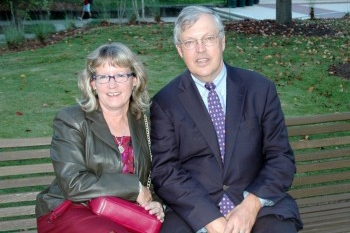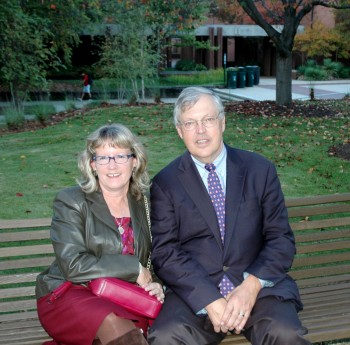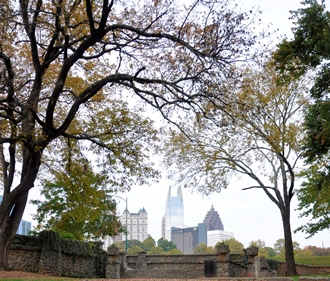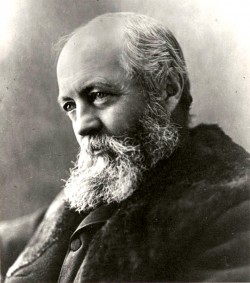
 |
| Jenny and Mike Messner |
A generous gift from Jenny and Michael (CE '76) Messner has enabled the School of Civil and Environmental Engineering to endow a new faculty position, The Frederick Law Olmsted Chair, dedicated to honoring and expanding on the vision of the landscape architect and city planner of the same name.
Frederick Law Olmsted may not be the first name to roll off the tongues of modern-day civil and environmental engineers, but it should be, says Messner.
“If there was ever a time when the genius of Frederick Law Olmsted should inspire our up-and-coming civil and environmental engineers, it is now,” he said.
“His dedication to properly engineered spaces which have long term public benefits can teach us volumes about how to combat the problems we face in our urban landscapes today.”
Messner, an investment manager, has recently been involved in efforts to help cities deal with the after-effect of the real estate crisis. Working with the Georgia Tech Research Institute (GTRI), he launched one initiative, Redfields to Greenfields. The project's focus is based on research that has shown that Atlanta and other great cities throughout the nation can be transformed for the better by addressing the real estate challenges on the ground: encouraging underutilized, financially underwater developments to be converted to public green space.
 |
| One of Olmsted's many creations: Piedmont Park in Atlanta |
The establishment of the Olmsted Chair at CEE dovetails with this perspective.
Messner is convinced that the next generation of civil and environmental engineers graduating from Georgia Tech can benefit from the Olmsted vision.
“Olmsted thought of his efforts as furthering the democratic civilization and improving the urban environment,” said Messner. “His life and work can be a great example to young engineers to help them understand fully what it means to be a true ‘civil’ and ‘environmental’ engineer—it’s about our society and our environment.”
“Olmsted thought that engineering projects—such as fresh water for New York City or flood control for Boston—could and should include social benefits as well,” he continued.
“That’s why his designs for parks and other urban spaces were so popular – from Boston’s Emerald Necklace to Atlanta’s Druid Hills to Stanford University in California. They solved urban planning problems but also created more livable urban environments.”
Messner said he hopes that the Olmsted Chair will instill a similar sense of mission in the next generation of CEE graduates.
“The establishment of this endowed chair is a thank-you to the School of Civil and Environmental Engineering for the great education I received and for the great work its future graduates can do to preserve and enhance our urban environments.”
 |
| Frederick Law Olmsted |
The Messners’ intent in creating this chair is perfectly in sync with the School’s mission to proactively tackle the grand challenges facing built and natural environments around the globe, says Karen and John Huff School Chair Dr. Reginald DesRoches.
“A critical issue we are facing as a nation is the maintenance and rebuilding of our aging infrastructure to ensure the quality of life for future generations of Americans. Our hope is that the holder of the Olmsted Chair will prompt our students and alumni who are engaged in this process to think creatively about how our cities and suburbs can be made more livable in the process of updating our infrastructure.”
The faculty chosen to fill the Frederick L. Olmsted Chair will be a leading scholar and teacher in the field of sustainable urban infrastructure systems, particularly the study of the intersection of the built infrastructures, natural systems, and socio-economic impacts. Preference will be given to individuals whose past and future contributions will be at the intersection of civil and environmental engineering systems, urban design, and policy.
For more information about this chair, please contact Dr. DeRoches at reginald.desroches@ce.gatech.edu
To find out more about Frederick Law Olmsted's work and vision, see the documentary film Olmsted and America's Urban Parks, a project of the Speedwell Foundation.
